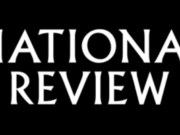Americans for Campaign Reform, a reform advocacy group chaired by former US Senators Bill Bradley, Bob Kerrey, Warren Rudman and Alan Simpson (of the Simpson-Bowles commission), have recently published a report entitled, “America’s Fiscal Crisis: Follow the Money,” detailing the sordid “undue influence of special interest money” on federal legislation and sounded the alarm for campaign finance and lobbying reform. Describing our current private campaign funding system as a “large, structural barrier” to effective reform of the federal budget due to the weight of overbearing special interest money on both campaigns and the legislative process, ACR advocates an increase in transparency and “fair elections” (in other words, “clean elections”) funding as a solution to the fiscal calamity facing the U.S.
It’s a common refrain heard across the political spectrum that resonates with people’s sense of intuition about money, politics and campaigning: corporations own Washington through massive donations and pressure legislators to do their bidding. While there are certainly legitimate reasons to believe that money has an impact on politics, that impact is frequently distorted, exaggerated and maligned in a way that attempts to shut out real debate over complex issues in order to declare war on corporate America; there is seldom a fair and comprehensive treatment of the value of money in political campaigns, or any dealing with the topic that his not charged with political outrage directed at businesses, unions and other politically engaged organizations.
The Americans for Campaign Reform paper fits into this paradigm and provides a good opportunity to dissect some of the prematurely drawn conclusions and false assumptions of the pro-regulation community. While the paper does provide a solid, if brief, analysis of the gridlock in Washington over budget matters, its prescriptions falsely portrays the influence of lobbying and private campaign finance as the chief culprit behind the inability of congress to cut federal budgets and improve the country’s fiscal position, and prescribes a dubious solution — “fair elections” — that has failed to meet expectations in a number of other cases.
Read the full Research Review here.
https://www.ifs.org/wp-content/uploads/2012/12/Challenging-some-presumptions-from-America%E2%80%99s-Fiscal-Crisis-Follow-the-Money1-copy.pdf














